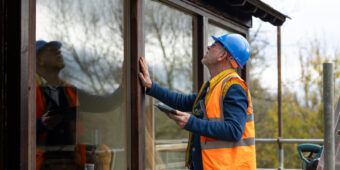BPB annual report released
28 Mar 2017, LBP & Regulation
The Building Practitioners Board’s annual report outlines a continuation of increased activity over the past 12 months, especially around dealing with complaints received by the Ministry of Business, Innovation and Employment
As of 23 February 2017, the scheme had 30,305 licences issued to 25,305 individuals (some LBPs hold more than one licence). In the 2015/2016 financial year, 720 new licences were granted.
Increasing complaints
According to the report, the number of complaints received by the Board has increased by about 71% in the past year – likely due to increasing consumer awareness of the programme and increased residential construction activity.
In relation to LBP complaints, the Board identified a number of common themes:
- The most dominant is the non-provision of records of work (RoW) memorandum. These are being withheld either out of ignorance or, in many cases, as leverage in a commercial dispute, neither of which are valid reasons.
- Poor understanding and application of site supervision.
- Undertaking work relating to general repair, maintenance and replacement as per Schedule 1 of the Building Act considered confusing to the industry at large. It is hoped that further Ministry-led guidance may reduce the number of complaints.
- Complaints about LBPs issuing signed statements (which are supposed to give assurance that building work meets the Building Code) based on little or no factual basis are increasing.
- Complaints that highlight the breakdown in the relationship between an LBP and the consumer where the LBP is replaced and a complaint made.
NOTE: Despite industry noise about the poor quality of design work, the Board has not received many complaints against designers.
Decisions on all these issues have been, and continue to be, made by the Board. The Board is encouraging LBPs to read these decisions so they can better understand how to avoid complaints in these areas.
Precedent-setting decisions
There have been a number of precedent-setting decisions this year, with the most significant ones relating to supervision.
Having taken into account Parliament’s intention in the Act, the Board decided that LBP supervision applies to work covered by a building consent AND non-consented work.
The Board also decided that, while the Act states an LBP cannot supervise another LBP of the same licensing class, if another LBP (employer) instructs an LBP to undertake work a certain way, and that work is subject to a complaint which is upheld, then the instructing LBP can be held to have carried out building work in their own right. While this does not fully address the power imbalance that exists between an employer and employee (as not all employers are LBPs), it is making those in positions of authority more accountable. The Board is also working with the Ministry to look at ways of further redressing this power imbalance.
Chairman of the Board, Chris Preston, says that now that the LBP scheme has been in place for a few years, there will be less leniency when it comes to decisions and repercussions.
“With respect to penalties handed down by the Board, the Board has, to date, taken the approach that the scheme is still relatively new and LBPs need the chance to fully understand their responsibilities,” said Preston in the report. “As such, the penalties imposed have been at the lower end, but it is the Board’s intention to increase these over the next year to make it clear that poor workmanship and behaviour will have its consequences. The time for leniency has ended.”
Complaints in numbers
One of the Board’s targets was to determine 80% of complaints within 85 working days of the date of the hearing. In the end, the Board surpassed its target, determining 100% of complaints within the timeframe. Another target was to determine 90% of appeals within 85 working days of receipt of a complaint appeal. This too was achieved, with the Board determining 95% of appeals within six months.
Of the total complaints/Board inquiries determined in 2015/16, 80 (82%) were upheld. The remaining 17 (18%) were not. Table2 details the licence classes held by LBPs who were disciplined.
The LBP scheme is a complex occupational licensing model with seven separate licence classes – six trade-related and one which deals with the design of certain residential buildings. When compared with the total number of licences in each license class, the proportion of LBPs disciplined per license class closely reflects the overall distribution.
Complaints by region
Almost half of the penalties imposed by the Board are Auckland-based. This high volume is thought to be due to the quantity of work being undertaken in the wider Auckland area and the interrelated pressures on labour supply.
Canterbury also appears to be a growth area for complaints, up from 6% in 2014/2015 to 11% in 2015/2016.
A substantial number of these complaints stemmed from a recently released report into the Building Code compliance (or lack thereof) of earthquake repairs to Canterbury homes.
The report followed an independent survey of 101 homes randomly selected from more than 2,700 addresses provided by EQC, Housing New Zealand and IAG. Once these potential acts of non-compliance were brought to the Board’s attention, it initiated inquiries into the LBPs in question.
Consequences
In 2015/2016, 89 penalties were imposed for 80 upheld complaints against LBPs. Some complaints had more than one penalty imposed. Possible penalties included having the LBP licence cancelled or suspended, getting fined, having their name published, being censured and/or being ordered to take training.
Looking ahead
Moving forward, the challenge for the Ministry, the Board and the sector as a whole is to lift the current levels of qualified entrants and work towards drawing a legislative ‘line in the sand’ for it to become an explicit requirement to hold a trade or design-related qualification to enter the scheme. This will be an important step in the scheme’s development and maturity.
Key points for LBPs to remember:
- You must provide a Record of Work once the building work is complete – whether you’ve been paid or not.
- Supervising someone else’s work requires actual supervision of the work and makes the supervising LBP liable for its quality.
- If in doubt, check it out! Don’t proceed with work if you suspect it might be non-compliant.
Register to earn LBP Points Sign in






